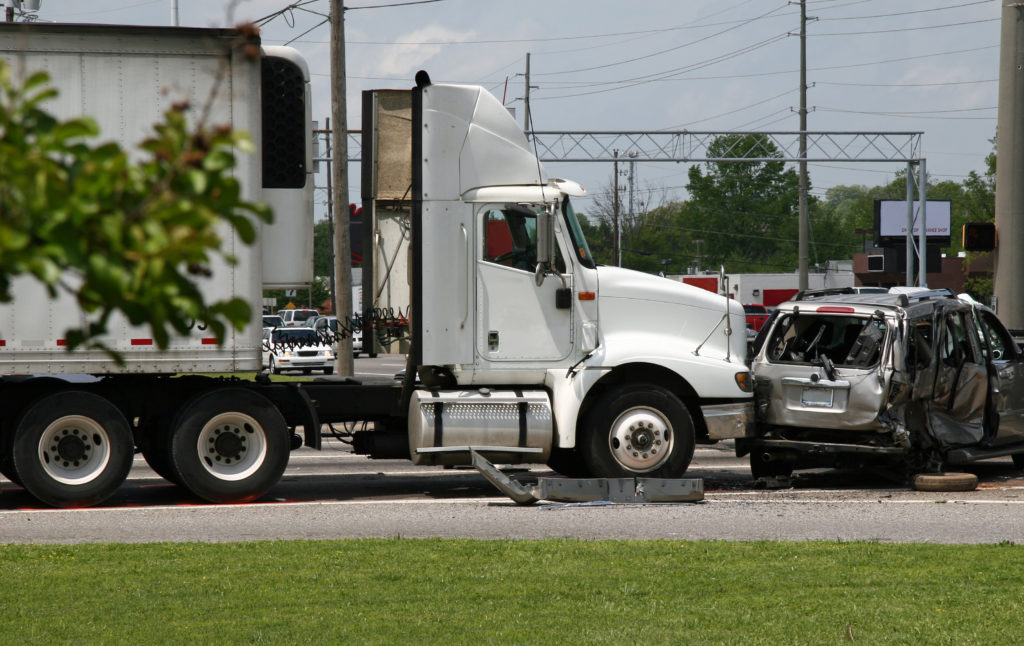
Understanding Compensation for Lost Wages After a Truck Accident
In my three decades of legal practice as a Phoenix personal injury advocate, I’ve seen firsthand how a collision with a truck can turn someone’s life upside down. Not only do victims have to deal with physical injuries, but the financial strain due to lost wages can be just as crippling. If you’re grappling with how to navigate the aftermath of a truck accident and are worried about your lost income, you’re not alone.
Truck accidents are particularly devastating due to the sheer size and weight of these vehicles compared to standard cars. The impact can be severe, leading to significant injuries that can keep you out of work for an extended period. But here’s what you need to know: compensation for lost wages is a key element of personal injury claims in such scenarios. If another party’s negligence or wrongdoing led to the accident, you might be entitled to recover lost wages.
In this blog, we’ll delve into the nuances of lost wage claims after a truck accident, defining what constitutes lost wages and outlining the steps to seek rightful compensation. Whether it’s temporary loss of income or long-term earning capacity that’s been affected, understanding your rights and the legal avenues available is the first step toward regaining your financial stability. Let’s explore how you can navigate this challenging time and what you need to know about securing the compensation you deserve.
The Aftermath of a Truck Accident
According to research, there are more than 168,000 truck accidents every year, around 32% of which involve an injury and around 3% result in a fatality.
Truck accidents are known to have severe consequences, both physically and emotionally, on the victims involved. The immense size and weight of commercial trucks can cause significant damage, leading to serious injuries, including traumatic brain injuries, spinal cord injuries, and bone fractures. Apart from the physical toll, truck accidents also result in emotional distress, leaving victims dealing with post-traumatic stress disorder, anxiety, and depression. The aftermath of a truck accident is a difficult and challenging time for victims, who not only have to cope with the physical recovery but also the financial repercussions, including lost wages.
The Impact on the Victim’s Ability to Work
Truck accidents can have a profound impact on the victim’s ability to work and earn a living. When individuals suffer personal injuries as a result of a truck accident, they may experience a loss of income due to their inability to perform their job duties. The severity of the injuries sustained in a truck accident can range from minor to life-altering, resulting in temporary or permanent disability. In cases where victims are unable to work for an extended period, lost wages become a significant concern, adding financial strain to an already distressing situation.
Lost wages, as the term suggests, refer to the income a victim cannot earn as a direct result of the truck accident. This encompasses the financial losses experienced due to the victim’s inability to work during their recovery period. The compensation for lost wages is an essential component of truck accident compensation, as it aims to offset the financial impact on the victim and help them maintain their financial stability while they focus on their recovery.
Calculating lost wages involves evaluating various factors, including the victim’s pre-accident earnings, the duration of time spent away from work, and the extent of the injuries suffered. Pre-accident income level serves as a benchmark for determining the compensation amount, taking into account the victim’s earning potential. Additionally, the length of time away from work post-accident plays a significant role in assessing the financial impact on the victim. Victims who are unable to work for an extended period may face heightened financial challenges, making fair compensation for lost wages crucial for their financial recovery.
The Physical and Emotional Stress
In addition to the financial implications, truck accidents often cause significant physical and emotional distress for the victims involved. The sheer force of a truck collision can result in severe injuries, such as broken bones, internal organ damage, and spinal cord injuries. One of the most serious injuries victims can sustain in a truck accident is a traumatic brain injury, which can have long-lasting effects on cognitive function, memory, and overall well-being.
The physical injuries resulting from a truck accident often require extensive medical treatment, including surgeries, hospitalizations, and rehabilitation. This not only adds to the financial burden but also places significant strain on the victim’s physical recovery and ability to return to work. The recovery process can be long and arduous, necessitating time away from work for medical appointments, physical therapy, and rest.
In addition to the physical toll, truck accidents also cause significant emotional distress for victims. Coping with the aftermath of a traumatic event can lead to anxiety, depression, and post-traumatic stress disorder, impacting the victim’s mental well-being and ability to function in everyday life. Emotional stress resulting from a truck accident can further hinder the victim’s capacity to work, exacerbating the financial challenges they face.
The physical and emotional impact of a truck accident can take a significant toll on victims, often affecting their ability to perform their job duties, resulting in lost wages and financial instability. Understanding the legal avenues available for compensation is vital to seek financial recovery and regain stability in the aftermath of a truck accident.
Understanding Lost Wages in the Context of a Truck Accident
Exploring the financial impact of truck accidents on wages is crucial. Calculating lost wages involves assessing pre-accident income levels and time away from work. Understanding the distinctiveness between lost wages and lost earning capacity is essential in determining fair compensation. The process can be complex, requiring documentation and dealing with insurance companies efficiently to secure a fair settlement. Ensuring legal representation by an experienced attorney familiar with federal regulations can significantly impact maximizing compensation.
Defining Lost Wages
In the context of a truck accident, lost wages refer to the income that a victim cannot earn due to their inability to work as a result of the accident. Lost wages encompass the financial losses experienced by victims during their recovery period, when they are unable to work and earn an income. These financial losses can arise from various factors, including medical treatments, rehabilitation, and the physical limitations caused by the injuries sustained in the truck accident.
Calculating lost wages involves evaluating the victim’s pre-accident earnings, considering factors such as salary, benefits, and time off. By comparing the victim’s pre-accident income with the income lost due to the accident, compensation can be determined for the wages lost during the recovery period. Lost wages differ from other forms of compensation, such as lost earning capacity, which accounts for the impact of the accident on the victim’s future income potential.
Obtaining fair compensation for lost wages is critical for the financial recovery of truck accident victims. It helps replace the income lost during the recovery period, providing financial stability and allowing victims to focus on their physical and emotional recovery without the added stress of financial hardship.
Difference Between Lost Wages and Lost Earning Capacity
Lost wages and lost earning capacity are two distinct concepts that are considered when determining compensation in a truck accident settlement. While lost wages refer to the actual income lost during the recovery period, lost earning capacity takes into account the impact of the accident on the victim’s future earning potential.
Lost wages pertain to the financial losses experienced by the victim as a direct result of being unable to work during the recovery period. Compensation for lost wages aims to replace the income lost during this time, providing financial support for the victim’s immediate needs.
On the other hand, lost earning capacity assesses the long-term impact of the accident on the victim’s ability to earn future income. This takes into consideration factors such as the severity of the injuries sustained, any resulting disabilities, and the victim’s occupation or profession. Compensation for lost earning capacity aims to provide financial support for the victim’s diminished future earning potential due to the accident.
Differentiating between lost wages and lost earning capacity is crucial in truck accident compensation cases, as it allows for a fair assessment of the financial impact of the accident on the victim. By taking into account both immediate lost wages and long-term lost earning capacity, victims can seek compensation that adequately addresses their financial needs and future financial security.
The Legal Framework Surrounding Truck Accident Compensation
Navigating the legal intricacies of truck accident compensation involves understanding the role of liability and the significance of legal representation. Federal regulations by agencies like the Federal Motor Carrier Safety Administration govern the operation of large trucks, impacting truck accident settlements. Seeking guidance from a personal injury lawyer can help in securing fair settlements for severe injuries sustained in commercial truck accidents. Knowing the legal framework is crucial in maximizing compensation through insurance claims and personal injury lawsuits.
Role of Liability in Truck Accident Cases
Understanding the critical nature of liability is paramount in the resolution of truck accident cases. Identification of the responsible party is fundamental in establishing liability post-accident. It significantly influences the compensation outcomes for those involved. The legal framework surrounding liability allocation is pivotal in determining responsibility in truck accident scenarios, guiding legal proceedings extensively. Accurate assessment of liability is indispensable in navigating the complexities of truck accident cases.
Importance of Legal Representation
Seeking legal representation is crucial in truck accident compensation cases. Engaging experienced legal counsel significantly boosts the likelihood of receiving a just settlement. Legal advocates navigate the intricate facets of truck accident lawsuits, safeguarding victims’ rights throughout the claims process. With legal backing, individuals benefit from expert guidance and strong advocacy, ensuring protection and representation in the complex realm of truck accident litigation.

Factors Contributing to Lost Wage Claims
Factors influencing lost wage claims in truck accident cases include the severity of injuries impacting work capacity, duration away from work, and the victim’s pre-accident income level. The extent of injury directly affects the ability to work, leading to wage loss. Time spent away from work due to recovery contributes to the overall wage claim. Pre-accident income establishes the baseline for calculating lost wages, crucial in determining the compensation amount.
Degree of Injury and Its Impact on Work Ability
Assessing the severity of post-accident injuries is vital for evaluating work capabilities. Injuries sustained can significantly hinder task efficiency at work. The degree of injury directly correlates with the impact on work activities. Understanding how injuries affect work abilities is crucial for determining compensation eligibility levels. Gauging the necessary compensation is reliant on assessing the influence of injuries on work capacity.
Duration of Time Spent Away from Work
Extensive absence from work post-accident can significantly influence financial recuperation for the injured party. Assessing the period away from work is pivotal in determining compensation eligibility and the financial impact on the victim. The length of time spent away from work following a truck accident is a crucial factor affecting the amount of compensation received. Evaluating this duration is essential in establishing the basis for a fair settlement.
The Victim’s Pre-accident Income Level
The assessment of the victim’s income before the incident plays a crucial role in determining fair compensation. Pre-accident earnings act as a yardstick for evaluating the compensation amount awarded to the victim. Understanding the victim’s financial status prior to the accident is a key factor in calculating the rightful compensation entitlement, considering it as a significant element in the overall evaluation process.
The Process of Claiming for Lost Wages
Gathering the required documentation is crucial for lost wage claims. Calculating the precise amount lost is essential for a fair settlement. Understanding the role of insurance companies in these claims can aid in navigating the process efficiently. Ensuring you have the necessary evidence and support from an experienced attorney maximizes your chances of receiving the compensation you deserve. Seek a free consultation to explore your options further.
Gathering the Necessary Documentation
When assembling essential paperwork after a truck accident, make sure to gather police reports, witness statements, and photos from the scene. Keep detailed medical records, treatment expenses, and rehabilitation costs on hand. It’s crucial to document lost wages and potential future earnings, especially in cases of severe and long-term disabilities. Seek guidance from a personal injury attorney to ensure all necessary documentation is in place for a robust compensation claim.
Calculating the Amount of Lost Wages
When determining lost wages after a truck accident, various factors come into play. As a victim, understanding the compensation options available is crucial. Your salary, benefits, and the duration of time off work significantly impact the calculation. Collecting proof like pay stubs and medical records is essential to support your claim. Collaborating with a personal injury lawyer ensures a fair settlement for your lost wages without any unnecessary hassle.
Role of Insurance Companies in Lost Wage Claims
Insurance companies play a vital role in evaluating lost wages post-truck accidents. Their adjusters assess how the incident affects your work capacity and income. Vital documents like pay stubs and medical records substantiate claims. Skillful negotiation with insurers, possibly with a legal expert, ensures equitable compensation. Understanding legal aspects of wage claims aids in seeking post-accident reparation effectively.
Navigating Legal Avenues for Compensation
Navigating legal avenues for compensation after a truck accident involves crucial steps. Seeking guidance from a personal injury lawyer experienced in truck accident cases is vital. They can provide valuable insights into truck accident settlements and federal regulations governed by the Federal Motor Carrier Safety Administration. Consulting with a legal team for a free consultation is advisable to understand the process of filing a personal injury lawsuit and pursuing fair compensation for severe injuries sustained in commercial truck accidents.
When to Consult with a Truck Accident Attorney
Seeking legal advice promptly after a truck accident is crucial to safeguard your rights. Consulting a knowledgeable truck accident attorney can help navigate complex legal proceedings. Don’t delay in reaching out for a free consultation to discuss your case. In severe injuries like traumatic brain injury or significant trauma, obtaining legal support is vital. An experienced attorney specializing in truck accident cases can assist in maximizing compensation and dealing with insurance claims effectively. Don’t underestimate the importance of seeking legal counsel early on to secure a fair settlement.
How Can Legal Expertise Help Secure Fair Compensation?
How legal expertise plays a crucial role in securing fair compensation after a truck accident. Understanding the importance of legal representation in navigating complex legal processes. Learn how lawyers can advocate for your rights effectively.
Bottom Line
Navigating the aftermath of a truck accident can be overwhelming, especially when you’re dealing with the added stress of lost income. Understanding your rights and the steps to claim compensation for lost wages is crucial. Remember, you’re not just a statistic in the rising number of truck accidents; you’re an individual with a right to financial recovery. Whether it’s consulting with a personal injury attorney or gathering the necessary documentation, taking action is key to securing the compensation you deserve. Don’t let the burden of lost wages after a truck accident overshadow your path to recovery and justice. Stay informed, seek professional guidance, and take the necessary steps to ensure your financial stability is restored.
Frequently Asked Questions
Q: What factors determine the compensation amount in a truck accident case?
A: The amount of compensation in a truck accident case is influenced by several factors. These include the severity of injuries sustained, the extent of property damage and financial losses incurred, and the liability, negligence, and insurance coverage of the parties involved. Additionally, having strong legal representation, gathering sufficient evidence, and negotiating with insurance companies can also impact the final compensation amount awarded.
Q: How does liability play a role in truck accident compensation claims?
A: Determining liability is pivotal in truck accident compensation claims, involving the truck driver, company, or third parties. Evidence like police reports and witness statements establishes liability, aiding in seeking compensation for damages and injuries.
Q: Are there different types of compensation available to victims of truck accidents?
A: Victims of truck accidents may receive various compensations, including coverage for medical bills and lost income caused by injuries. Compensation can extend to pain and suffering resulting from the accident, and in tragic cases, family members might seek compensation for loss of support and companionship.
Q: What types of damages can be included in truck accident compensation?
A: Compensation for truck accidents may cover medical expenses, lost income, pain and suffering, and vehicle damages. These damages aim to address the victim’s financial losses, physical injuries, and emotional distress post-accident.


